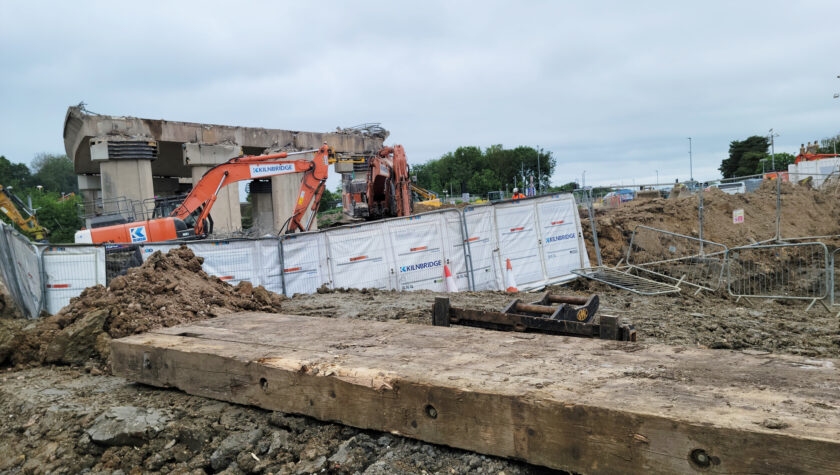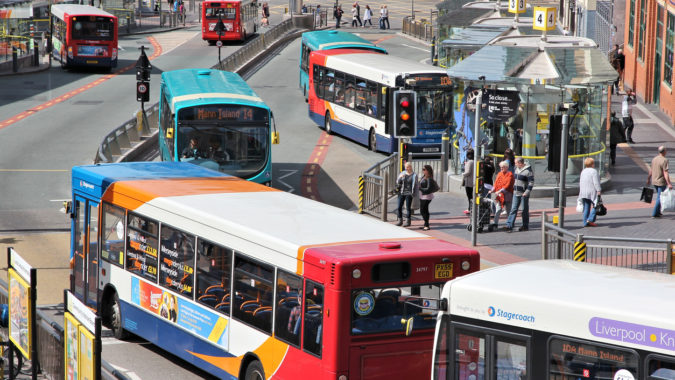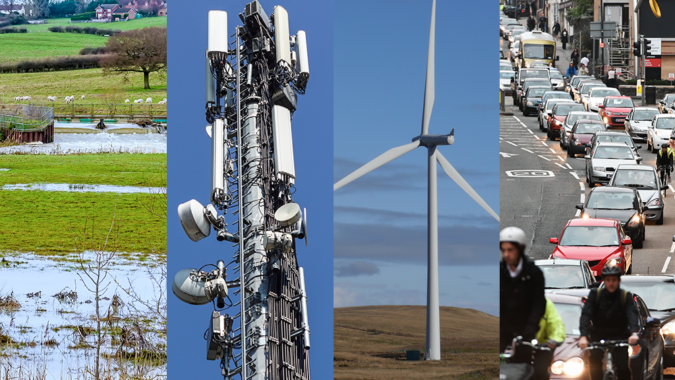For many of us, recycling has become a part of the daily routine.
We separate out glass, plastic and cardboard waste into recycling bins, to be collected and reprocessed into new products
We donate old clothes to charity shops where they’re given a new lease of life. And put our garden waste in a separate bin so it can be composted.
This goal of a more ‘circular’ waste economy, where more of our waste is reused and repurposed rather than simply disposed of, is an important component in decarbonising the systems we use to manage the UK’s waste, some of which – including energy-from-waste plants and landfill sites – produce significant greenhouse gas emissions or damage the environment in other ways.
But how do you recycle something like a wind turbine, a disused motorway flyover or a bus station, or build them in a low carbon, ‘circular’ way in the first place?
Can the principles behind a circular economy for household waste be applied to how we construct our infrastructure?
The organisations behind Our Shared Understanding think so.
It’s a call to action by over 80 businesses and organisations involved in creating and managing the global built environment. They want to create a sustainable future for the sector by accelerating the transition to a circular economy across the construction supply chain.
The Commission has added its name because the approach aligns with much of our current work, namely how we best reduce the overall environmental impacts of our infrastructure and ensure it helps the UK achieve its target of net zero carbon emissions by 2050.
This is an important element of our work for good reason: two thirds of all UK greenhouse gas emissions come from infrastructure.
Take waste, for instance – emissions from the UK waste sector are just over 20 MtCO2e a year. So the question of what the waste sector must do to eliminate emissions and shift to a more circular model is something we’re looking at closely in our next National Infrastructure Assessment.
But creating more sustainable infrastructure is not just about reducing emissions from its operation. It is about considering sustainability at every stage of a project, including its construction and design.
Good infrastructure design means providing opportunities during the planning and construction phases to mitigate and reduce carbon and other emissions from key processes such as from the manufacture and use of concrete, which is often a key feature of many major infrastructure projects.
Infrastructure developers should also consider the impact of any development on natural capital – our rivers, our air, our wildlife habitats – and take every opportunity for it to contribute positively to the local environment and biodiversity, leaving the environment in measurably better state than before.
These approaches underpin the ‘carbon’ principle in our Design Principles for National Infrastructure, developed by our Design Group in 2020.
The need for more sustainable infrastructure has also shaped recommendations we’ve made more recently, such as calling for a shift towards nature-based drainage solutions ahead of more concrete pipes in new housing development to address surface water flooding, or ensuring that the planning system encourages infrastructure projects that measurably improve the state of the natural environment.
Reducing the environmental impact of our built environment and creating a circular economy is a significant challenge. As Our Shared Understanding reminds us, globally the built environment sector is a big user of natural resources, extracting over 100 billion tonnes of natural resources a year.
And while the built environment covers only one per cent of the earth’s surface, it’s responsible for a quarter of land system changes that lead to habitat destruction, water stress and biodiversity loss.
So, significant change is required. But that can only come through a shared recognition of both the scale of the problem, and the steps needed to respond effectively.
Our Shared Understanding recognises the impact that the built environment has on the environment and, in response, sets out broad principles that will allow the sector to better operate within the planet’s finite resource and do more to both handle and reduce the waste it generates on any major building project.
These include:
- getting the greatest possible value from the use of materials and products used in creating the built environment, including by redeploying elsewhere assets or materials that have reached the end or their useful life
- ensuring building design uses more renewable materials in the first place and makes greater use of nature-based solutions, such as for flood protection
- using digital technology to connect the complex systems on which construction depends
- and getting the most out of materials and products by making buildings last longer and be easier to adapt and maintain.
Sustainable infrastructure construction is an important part of a low carbon future, and some transformative changes will be required to deliver it. Our Shared Understanding offers a blueprint for where, and how, that transformation can begin.
Jo Pearce is a policy adviser at the Commission working on waste.



